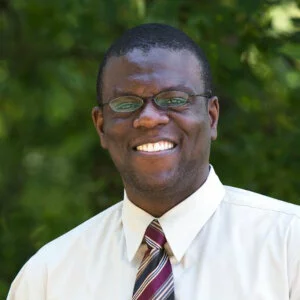Oh seminary student, it is a fearful thing to fall into the hands of the living God. So we are told in the inspired words of Hebrews 10:31. Those who do not know Christ are well advised to pay attention to the counsel of Holy Scripture. Even Christian lay people should be reminded on a regular basis that the God of grace and mercy is also the One who says, “Be holy, because I am holy” (1 Pet 1:16; Lev 11:44, 45; 19:2). The holiness of God is a great and awesome and awful light that shines in every dark place. Of all people, pastors and seminary students should be trembling. That is why the brother of our Lord wisely warns us, “Not many of you should presume to be teachers, my brothers, because you know that we who teach will be judged more strictly” (James 3:1).
Pity the addict who slouches back to those black dragons of alcohol, drugs, pornography, or whatever the latest name of his demonic slaveholder. But pity even more the one who reads and studies the Bible for class, who studies and debates theology, who consumes church history and the like, and yet fails to be personally transformed and changed and affected by these powerful truths. It is a fearful thing indeed.
The Puritans, full of the kind of wisdom that is hard to find today, used to make a distinction between “gifts” and “graces.” Many of us seminary students are naturally gifted in all sorts of ways—high IQ, smarts, the ability to write and think well. Good talents to be used all for the glory of God (1 Cor 10:31). But that is something entirely different from the supernatural graces that the Holy Spirit bestows on the children of God, the graces that allow us to bear the fruit of the Spirit in Galatians 5:22-24. Love, joy, peace. Patience and kindness. Goodness and faithfulness and gentleness. Self-control. Paul spoke truly—there is no law against such things. The wise seminary student learns quickly to thank God for His gifts, but to be ever praying, beseeching the Lord to give us more of His graces. Those do not come naturally; they are given supernaturally by the power of the Word and the means of grace.
Beware the noetic effects of sin. They brilliantly cloud our judgment and self-perception, so that we do not know, we are oblivious to how much the depravity and madness of sin has seeped into our very souls. Our wives and our children have to suffer through our conceit, selfishness, and arrogance. The temptation is always there; to be bookish is its own blessing, but to be holy is a much greater blessing—and responsibility. A fine prophet of the Old Testament spoke a better word than any modern counselor today—“The heart is deceitful above all things and beyond cure. Who can understand it?” (Jer 17:9)
Lest these musings be dismissed, there is a powerful reminder in a recent anonymous article from Towers, a publication of Southern Baptist Theological Seminary: http://www.crosswalk.com/11646154/page0/.
Read it slowly and prayerfully. Repent. And ask Christ for His supernatural grace so that we not only know theology in a merely intellectual way—and thus deceive ourselves—but rather that we know theology in the fullest way, in the only true way, a transformative way, that leads to right doctrine and right living, orthodoxy and orthopraxy, sound theology and deep piety.
God help us.




Comments
Be the first one to make a comment!